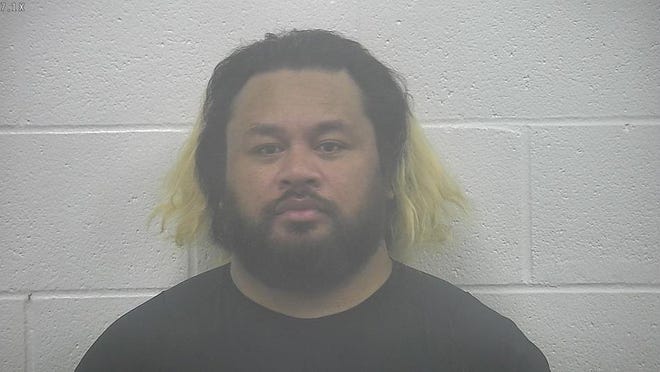
WASHINGTON – Attorney General Merrick Garland said the Justice Department is working on "surfacing potentially problematic matters" tied to the agency's aggressive leak investigations under the Trump administration, adding that "important questions … must be resolved" about efforts to obtain phone records of lawmakers and their staff.
"As I stated during my confirmation hearing, political or other improper considerations must play no role in any investigative or prosecutorial decisions. These principles that have long been held as sacrosanct by the DOJ career workforce will be vigorously guarded on my watch, and any failure to live up to them will be met with strict accountability," Garland said in a statement Monday.
Meanwhile, the chief of the Justice Department's National Security Division, John Demers, is departing amid a furor over phone record disclosures, a Justice Department official said Monday. The resignation of Demers comes a day after Senate Majority Leader Chuck Schumer, D-N.Y., called for Demers to testify about the DOJ action targeting the lawmakers.
A Justice Department official said Demers had intended to leave the department before the end of June after remaining at his post after the Trump administration.

House Judiciary Committee Chairman Jerrold Nadler, D-NY, announced in a statement Monday that the committee "will investigate the Trump Administration’s surveillance of Members of Congress, the news media, and others."
"I am encouraged by the steps the Attorney General announced this morning, but we cannot wait for the Inspector General to share even his preliminary findings with DOJ, some months or years from now, before Congress contemplates a response," Nadler said in the statement.
The department's independent watchdog has launched a broad investigation into whether the Trump administration and its two attorneys general improperly seized the communications records of House Democratic lawmakers, their staff and journalists as part of an aggressive leak investigation in 2018.
Inspector General Michael Horowitz said last week that his office would investigate whether the Justice Department complied with its own policies and procedures when it subpoenaed the communications data of Democratic lawmakers and their associates, as well as phone records of reporters from The New York Times, The Washington Post and CNN.
While the inspector general's investigation proceeds, Garland said Monday, he had instructed Deputy Attorney General Lisa Monaco to "evaluate and strengthen the department’s existing policies and procedures for obtaining records of the Legislative branch."
"Consistent with our commitment to the rule of law, we must ensure that full weight is accorded to separation-of-powers concerns moving forward," Garland said.
Democratic Reps. Adam Schiff and Eric Swalwell, two of former President Donald Trump's most outspoken critics in Congress, confirmed last week that Trump-era Justice Department officials secretly seized their Apple phone data and data from 10 or so other House Intelligence Committee members, their aides and relatives, one of whom is a minor.
More:DOJ inspector general to review Trump Justice Department's seizure of Democrats' phone data
The revelations angered Democrats who have long accused the former president of using the Justice Department to go after his perceived political enemies. Democratic leaders promptly called for an investigation and demanded that former Attorneys General William Barr and Jeff Sessions testify about the seizure of phone records.
"The news about the politicization of the Trump administration Justice Department is harrowing," House Speaker Nancy Pelosi, D-Calif., said in a statement. "These actions appear to be yet another egregious assault on our democracy waged by the former president."
The federal grand jury subpoena, which Apple received in February 2018, appeared to have cast a wide net, seeking data on more than 100 phone numbers and email addresses to find out who talked to reporters.
Apple said the subpoena sought "customer or subscriber account information" tied to 73 phone numbers and 36 email addresses. The subpoena did not state the nature of the investigation, Apple said, adding that the company provided only metadata and account subscriber information, not emails or pictures.
The subpoena included a gag order signed by a federal magistrate judge that kept a lid on the investigation for three years. The Biden administration did not seek to extend the gag order, allowing Apple to notify the subjects of the subpoena on May 5 that their phone data had been seized.
More:Justice Department says it will no longer seize journalists' records
The investigation did not find evidence tying the lawmakers to leaks to the press, Schiff and Swalwell said last week.
"This baseless investigation, while now closed, is yet another example of Trump's corrupt weaponization of justice," Schiff, D-Calif., said last week.
Swalwell, D-Calif., said lawmakers' family members were "targeted punitively," and the gag order was motivated by fear of a public perception that the Trump administration was going after the former president's perceived enemies.
This month, the Justice Department announced it would no longer secretly obtain journalists' records during leak investigations, a departure from a policy used by previous administrations to try to identify sources who provided journalists with classified information.
Garland was set to meet Monday with representatives of The New York Times, The Washington Post and CNN, whose reporters were targeted as part of the leak investigation by Trump administration prosecutors.









